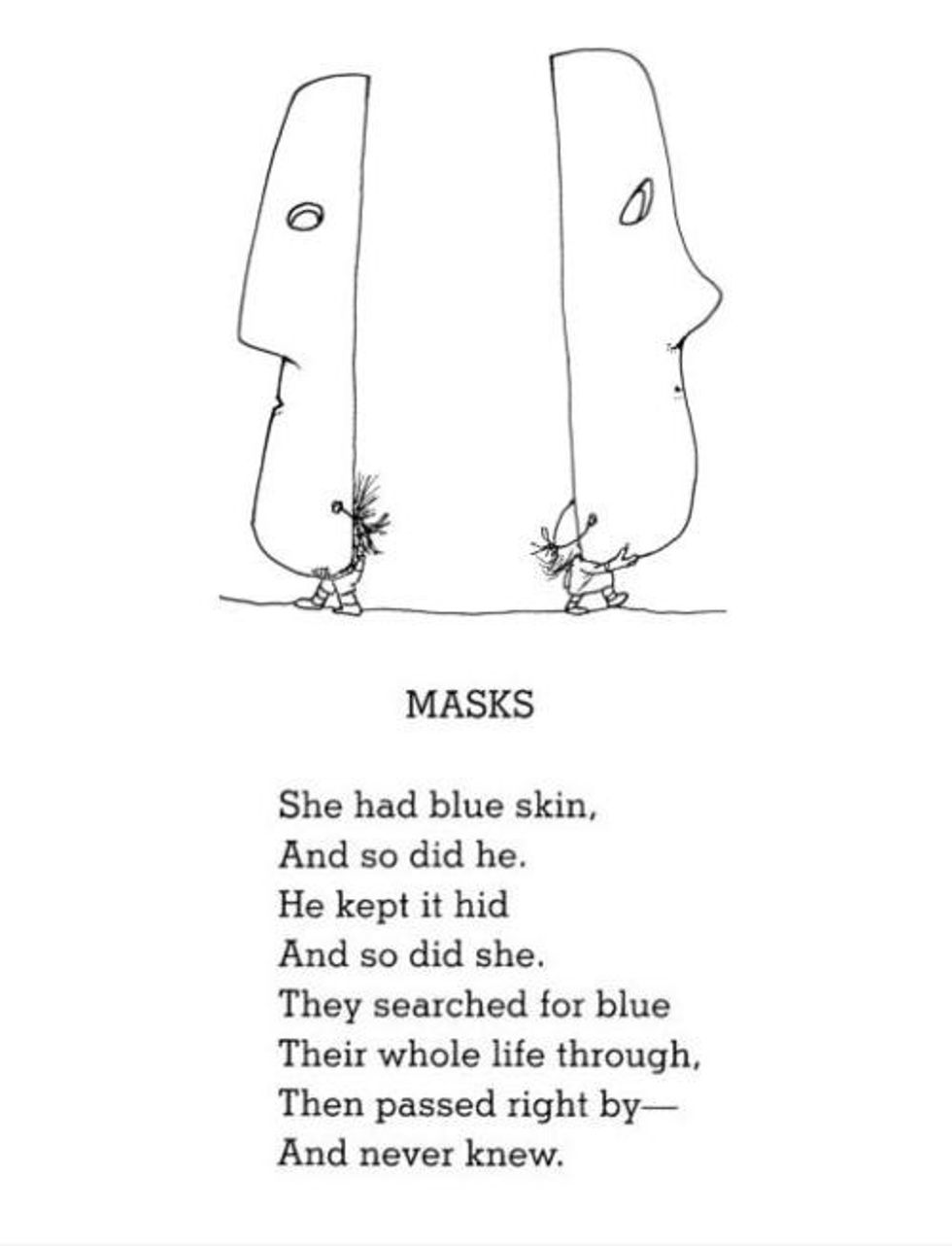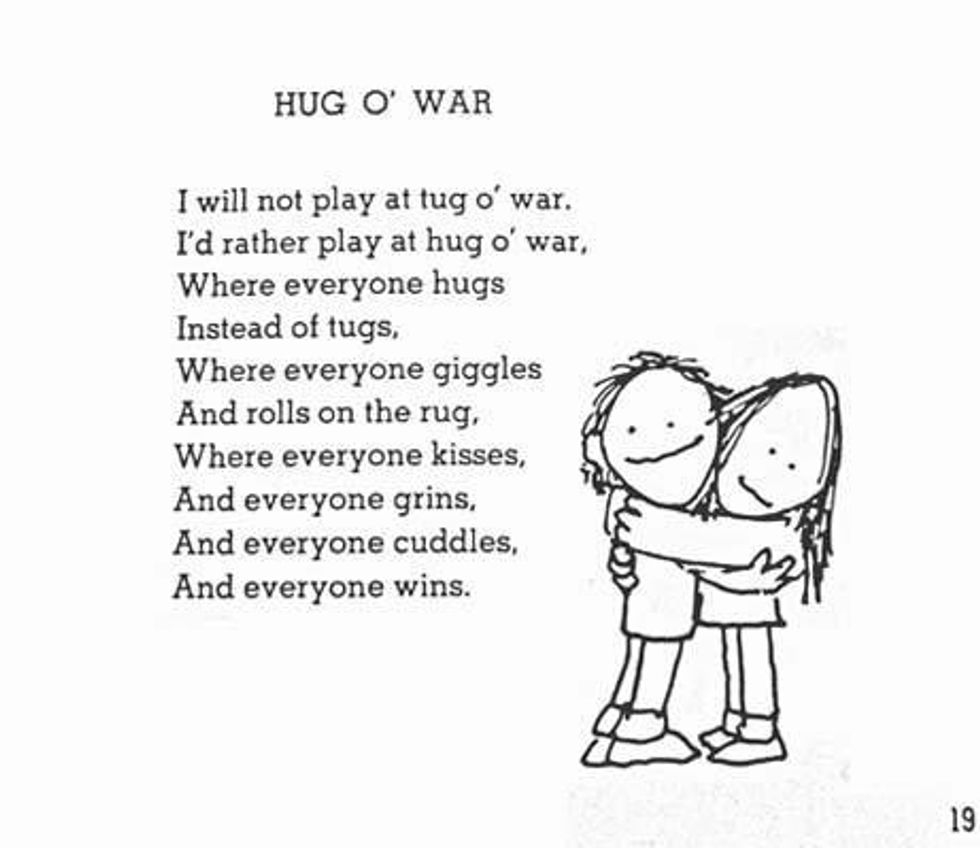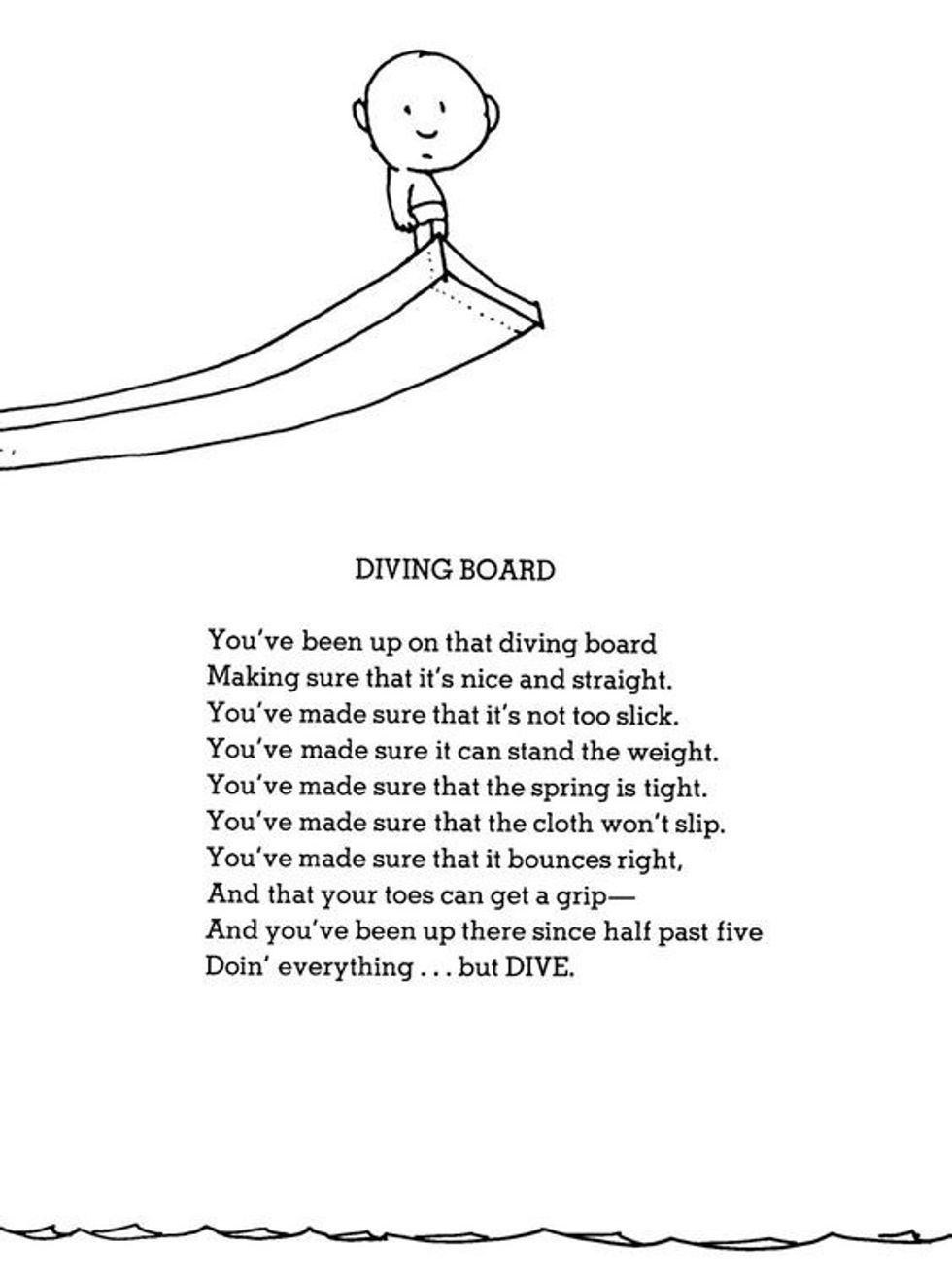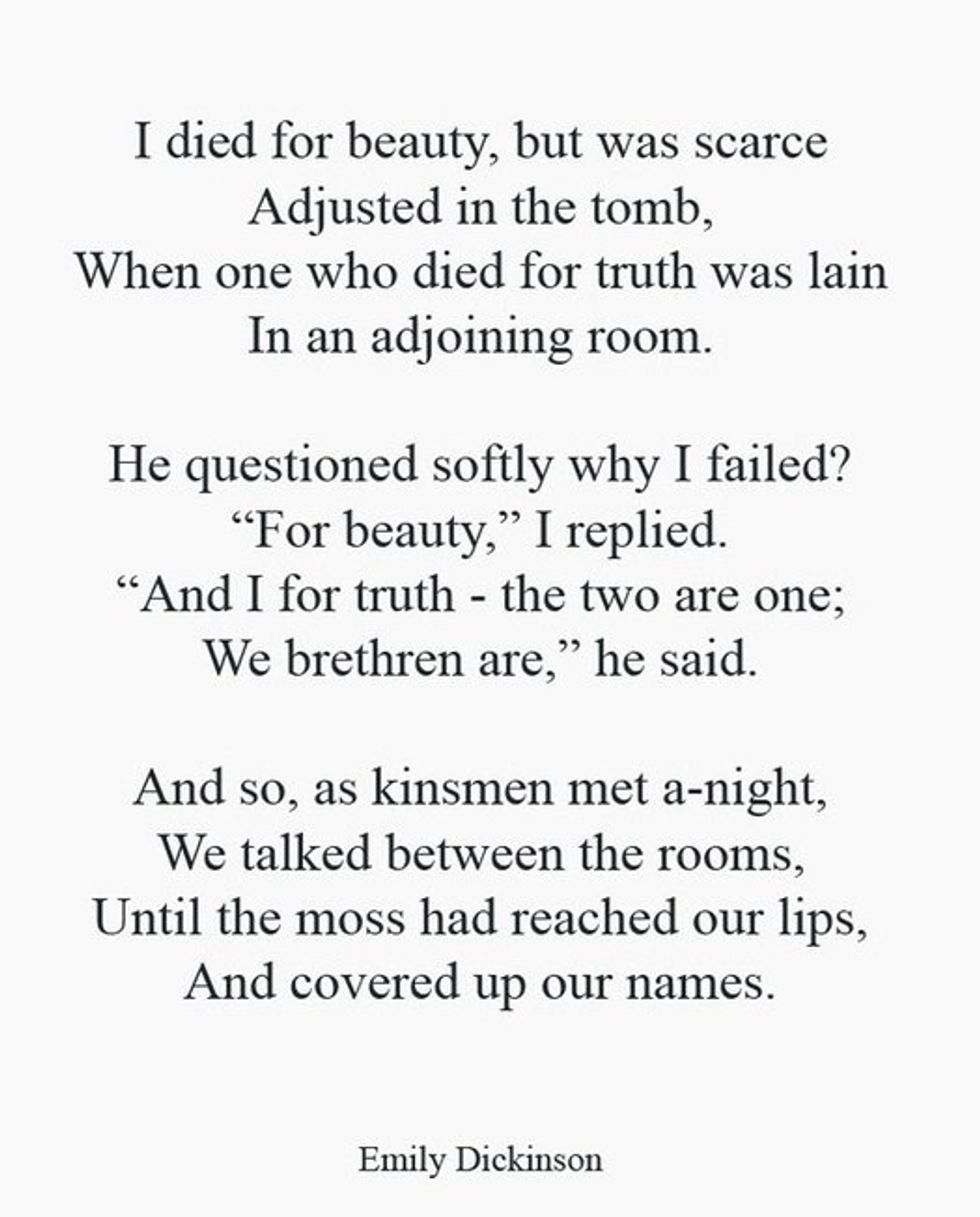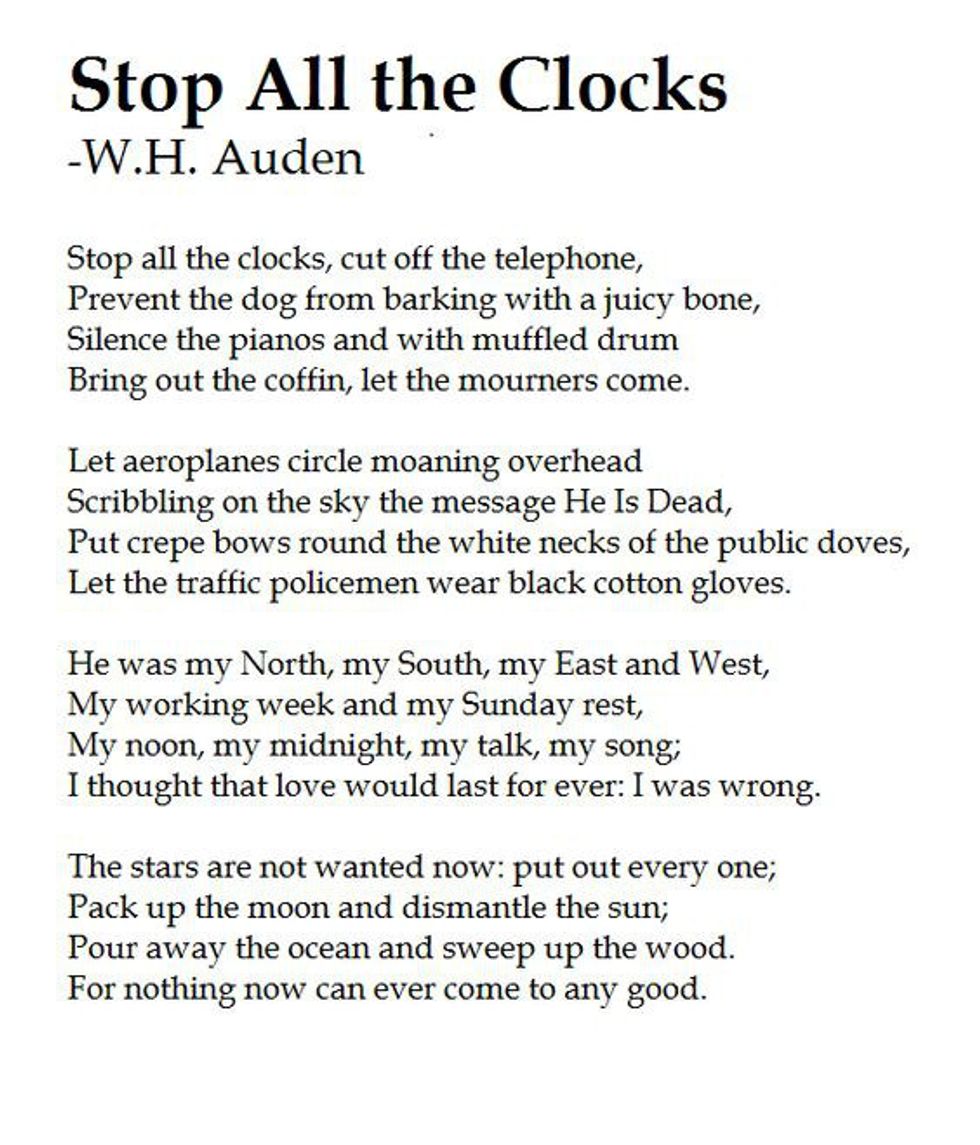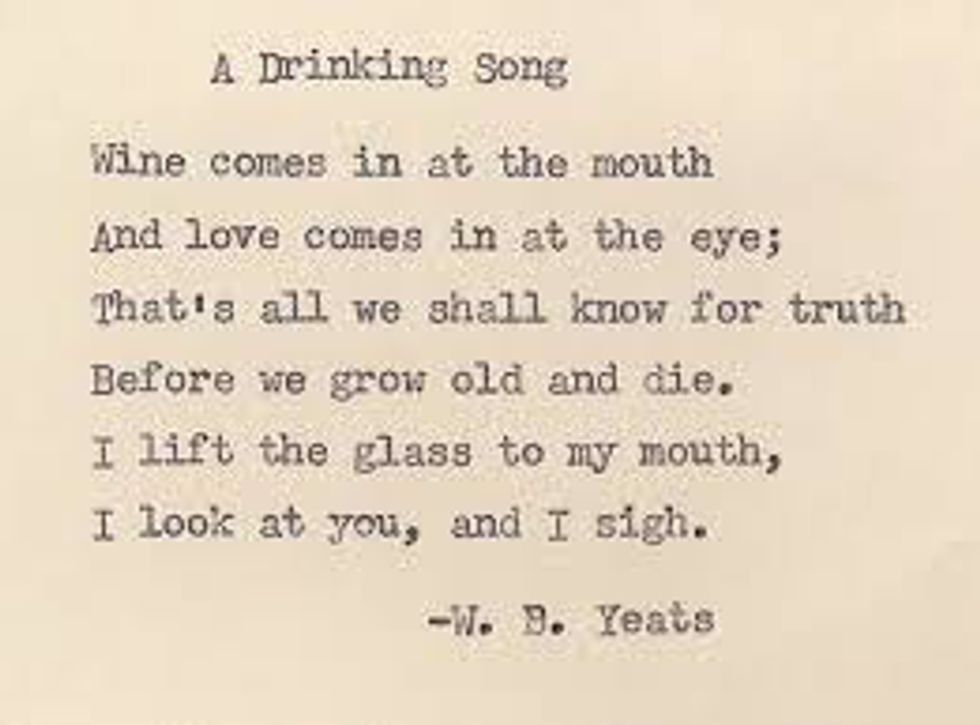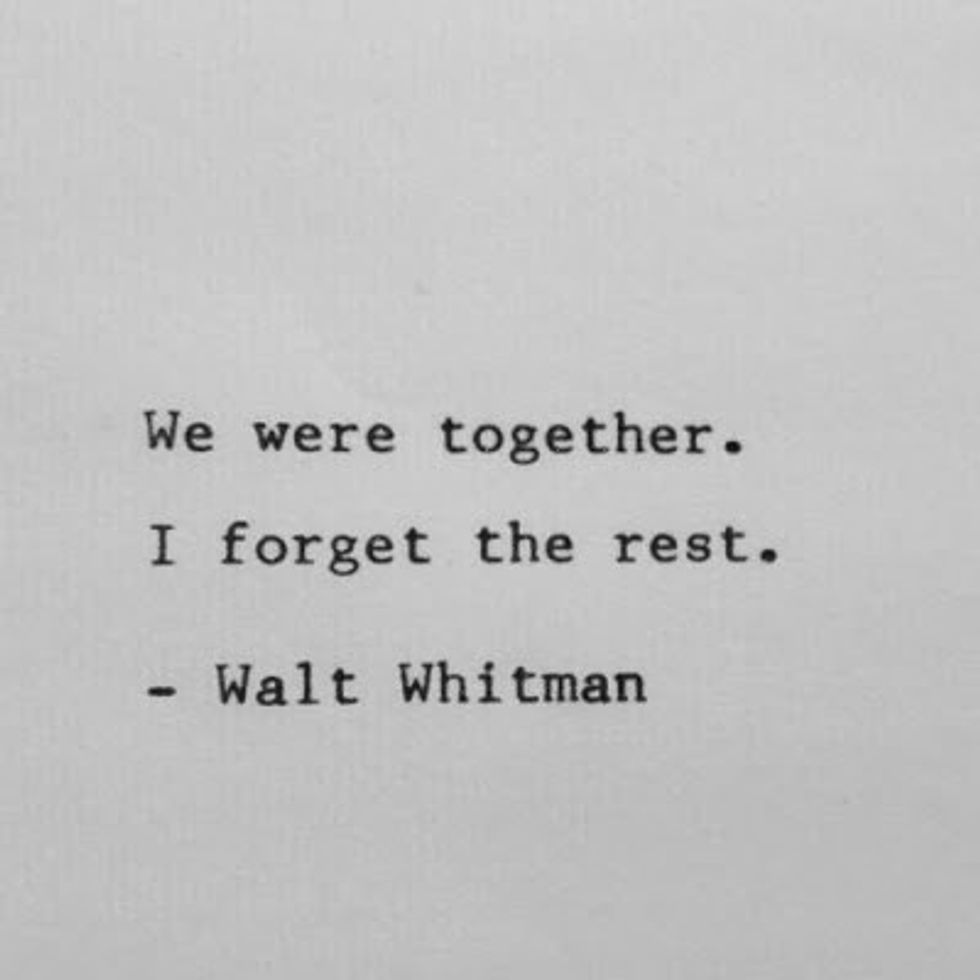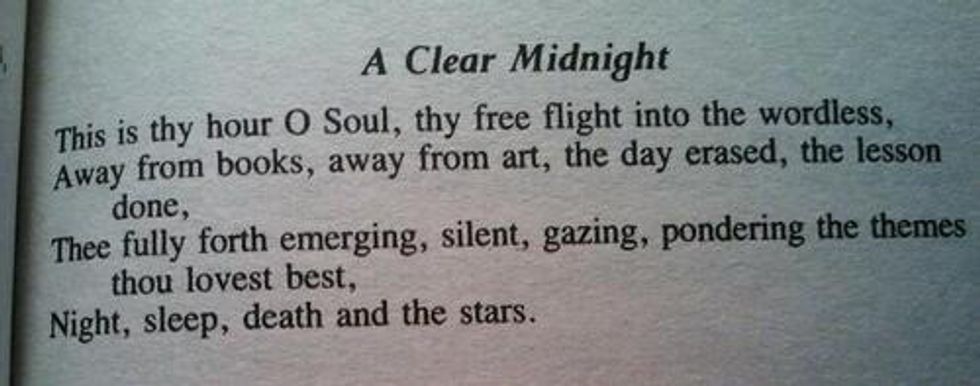Do you count yourself among the race of non-poemy people? Are you one of those souls who give up after the first line of reading a poem because you just don't get it? Well friends, I used to be among you so I know the feeling. But fear not! There is hope for you yet. All you simply need to get into poetry is to start with reading the right poems, the ones that open up the gateway for you. To get you started, I have complied a few of some of the greatest, yet most approachable poems to turn you from an non-poemetician into a Poem-ephile!
Recommended for you
Shel Silverstein
He was known for his unique drawings and witty poems that anyone can understand and appreciate. Although he mostly wrote children poetry books, that is not to say his poems are only for children. Often I went to Shel Silverstein for smart, funny, and quick poems to brighten up my day, and teach me to not be so serious.
"Listen to the mustn'ts child "
Listen to the MUSTN'TS, child,
Listen to the DON'TS
Listen to the SHOULDN'T
The IMPOSSIBLES, the WONT'S
Listen to the NEVER HAVES
Then listen close to me-
Anything can happen, child,
ANYTHING can be.
"How Many, How Much"
How many slams in an old screen door?
Depends how loud you shut it.
How many slices in a bread?
Depends how thin you cut it.
How much good inside a day?
Depends how good you live ‘em.
How much love inside a friend?
Depends how much you give ‘em.
Underneath my outside face
There’s a face that none can see.
A little less smiley,
A little less sure,
But a whole lot more like me.
"Yesees and Noees"
The Yesees said yes to anything
That anyone suggested.
The Noees said no to everything
Unless it was proven and tested.
So the Yesees all died of much too much
And the Noees all died of fright,
But somehow I think the Thinkforyourselfees
All came out all right.
Emily Dickinson
She was known for being a hermit, so most of her poetry was publicly recognized and published only after her death. But Emily Dickinson wrote some of the most sensitive and brilliant poems of her age, exploring the deepest themes in the most beautiful and approachable way.
"Who Robbed the Woods"
Who robbed the woods,
The trusting woods?
The unsuspecting trees?
brought out their burrs and mosses
his fantasy to please.
He scanned their trinkets, curious,
He grasped, he bore away
What will the solemn hemlock,
What will the fir-tree say?
"'Hope' is the thing with feathers"
“Hope” is the thing with feathers -
That perches in the soul -
And sings the tune without the words -
And never stops - at all -
And sweetest - in the Gale - is heard -
And sore must be the storm -
That could abash the little Bird
That kept so many warm -
I’ve heard it in the chillest land -
And on the strangest Sea -
Yet - never - in Extremity,
It asked a crumb - of me.
Jack Prelutsky & Others
Jack Prelutsky, like Silverstein, is also a children's poetry writer, known for his wacky and imaginative poems.
"Be Glad Your Nose is on Your Face"
Be glad your nose is on your face,
not pasted on some other place,
for if it were where it is not,
you might dislike your nose a lot.
Imagine if your precious nose
were sandwiched in between your toes,
that clearly would not be a treat,
for you’d be forced to smell your feet.
Your nose would be a source of dread
were it attached atop your head,
it soon would drive you to despair,
forever tickled by your hair.
Within your ear, your nose would be
an absolute catastrophe,
for when you were obliged to sneeze,
your brain would rattle from the breeze.
Your nose, instead, through thick and thin,
remains between your eyes and chin,
not pasted on some other place—
be glad your nose is on your face!
Walt Whitman
He was considered and "everyman's" poet because his poetical musings were usually patriotic and often involved thoughts of the public, his fellow citizens and strangers on the street. They are meant for everyone. You may even recognize one from Dead Poets Society!
Oh me! Oh life! of the questions of these recurring,
Of the endless trains of the faithless, of cities fill’d with the foolish,
Of myself forever reproaching myself, (for who more foolish than I, and who more faithless?)
Of eyes that vainly crave the light, of the objects mean, of the struggle ever renew’d,
Of the poor results of all, of the plodding and sordid crowds I see around me,
Of the empty and useless years of the rest, with the rest me intertwined,
The question, O me! so sad, recurring—What good amid these, O me, O life?
Answer.
That you are here—that life exists and identity,
That the powerful play goes on, and you may contribute a verse.
I hope you have enjoyed these poems, and that they have allowed you to have a greater understanding and appreciation for poetry as a whole. These authors are very easy to get into, but there are many more out there to explore. Go out and contribute a verse!




